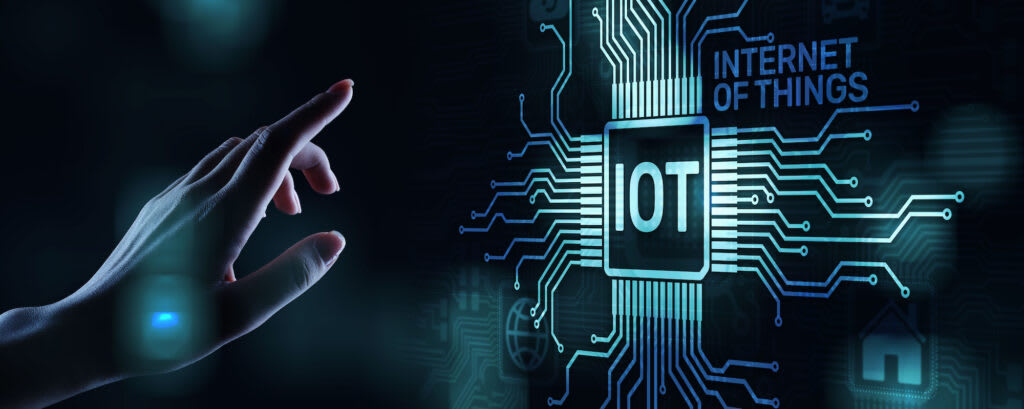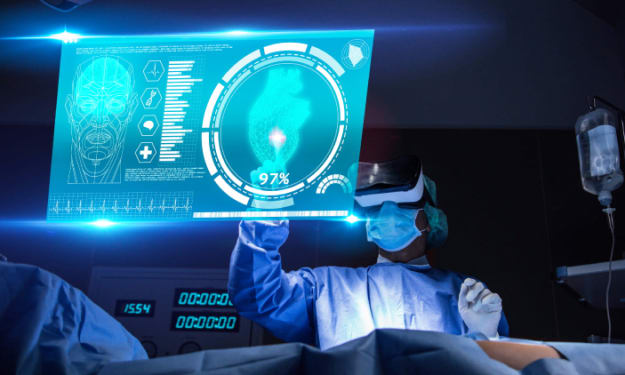The Internet of Things: Connecting Our World in a Digital Ecosystem
The Internet of Things: Unleashing the Potential of a Connected World

In today's interconnected world, the Internet of Things (IoT) has emerged as a revolutionary concept that promises to transform the way we live, work, and interact with technology. The IoT refers to the network of physical objects, devices, vehicles, and other items embedded with sensors, software, and connectivity, enabling them to collect and exchange data over the internet. This interconnected web of devices is connecting our world in a digital ecosystem, with profound implications for various industries and our daily lives.
The IoT is rapidly expanding its reach, with estimates suggesting that by 2025, there will be more than 75 billion connected devices worldwide. From smart homes to industrial automation, healthcare to transportation, the IoT is reshaping every aspect of our lives. It offers tremendous opportunities for efficiency, convenience, and innovation, but it also presents significant challenges and risks.
One of the key advantages of the IoT is its potential to enhance our daily lives through smart homes. Imagine waking up to an alarm that not only wakes you up but also adjusts the thermostat to your preferred temperature and brews your morning coffee. With interconnected devices, you can control your lights, appliances, security systems, and more, all from the convenience of your smartphone. Smart homes not only make our lives more comfortable but also promote energy efficiency and reduce waste.
In the industrial sector, the IoT is revolutionizing manufacturing processes through what is known as Industry 4.0. By connecting machines, equipment, and systems, manufacturers can achieve unprecedented levels of automation, optimization, and productivity. IoT-enabled sensors can monitor machine performance, predict maintenance needs, and even facilitate self-healing systems. This leads to reduced downtime, lower costs, and increased competitiveness.
Healthcare is another domain that stands to benefit greatly from the IoT. With wearable devices and smart medical implants, patients can monitor their vital signs in real-time, enabling early detection of health issues and prompt medical interventions. IoT devices can also enable remote patient monitoring, allowing healthcare providers to monitor patients' conditions from a distance and provide personalized care. This not only improves patient outcomes but also reduces the burden on healthcare systems.
Transportation is being revolutionized by the IoT as well. Connected vehicles can communicate with each other and with infrastructure, leading to safer roads, reduced congestion, and optimized traffic flow. Autonomous vehicles, powered by IoT technologies, are poised to transform the way we travel, making transportation more efficient and sustainable. Additionally, logistics and supply chain management are becoming more streamlined and transparent through IoT-enabled tracking systems.
While the IoT brings unprecedented possibilities, it also raises concerns about privacy, security, and data governance. With billions of devices collecting and transmitting data, the potential for unauthorized access and misuse of information becomes a significant challenge. Safeguarding privacy and securing IoT networks and devices is crucial to prevent data breaches, identity theft, and other cyber threats. It requires robust encryption, authentication protocols, and regulatory frameworks that protect both individuals and organizations.
Another challenge is the interoperability and standardization of IoT devices and platforms. As the number of connected devices continues to grow, ensuring seamless communication and compatibility between different systems becomes essential. Common standards and protocols need to be established to facilitate interoperability, promote collaboration among manufacturers, and prevent fragmentation in the IoT ecosystem.
Furthermore, the sheer volume of data generated by IoT devices poses challenges for data storage, processing, and analysis. The concept of big data is closely intertwined with the IoT, as the collected data can provide valuable insights and enable predictive analytics. However, managing and making sense of vast amounts of data requires advanced infrastructure, data analytics capabilities, and data governance frameworks that balance privacy and innovation.
To unlock the full potential of the IoT, collaboration among various stakeholders is vital. Governments, industry leaders, and researchers must work together to establish regulatory frameworks, standards, and best practices that promote the responsible deployment and use of IoT technologies. This collaboration can ensure that ethical considerations, such as privacy, security, and sustainability, are at the forefront of IoT development.
Education and awareness are also essential in harnessing the benefits of the IoT. People need to understand how the technology works, its implications, and how to protect themselves in this interconnected ecosystem. Promoting digital literacy and providing training programs can empower individuals to navigate the IoT landscape safely and make informed decisions about their privacy and security.
Moreover, addressing the digital divide is crucial to ensure equitable access to the benefits of the IoT. While developed countries are witnessing significant IoT adoption, it is essential to bridge the gap between regions and communities with limited access to technology. Initiatives aimed at providing affordable connectivity and promoting digital inclusion can enable underserved populations to participate in the digital ecosystem and reap the rewards of the IoT.
Looking ahead, the future of the IoT holds even more promise. As technology continues to evolve, advancements such as 5G networks, edge computing, and artificial intelligence will further enhance the capabilities of IoT devices. This will lead to faster and more reliable connectivity, real-time processing of data at the edge of networks, and intelligent decision-making by IoT systems.
In conclusion, the Internet of Things is connecting our world in a digital ecosystem that spans across industries and aspects of our daily lives. From smart homes to industrial automation, healthcare to transportation, the IoT is transforming the way we interact with technology and shaping a more connected and efficient future. However, with these opportunities come challenges, including privacy concerns, security risks, and the need for standardization. By addressing these challenges and fostering collaboration, education, and inclusivity, we can unlock the full potential of the IoT and create a digital ecosystem that benefits all. As we embrace the IoT, it is crucial to prioritize responsible and ethical practices to ensure a sustainable and secure future in this interconnected world.





Comments
There are no comments for this story
Be the first to respond and start the conversation.